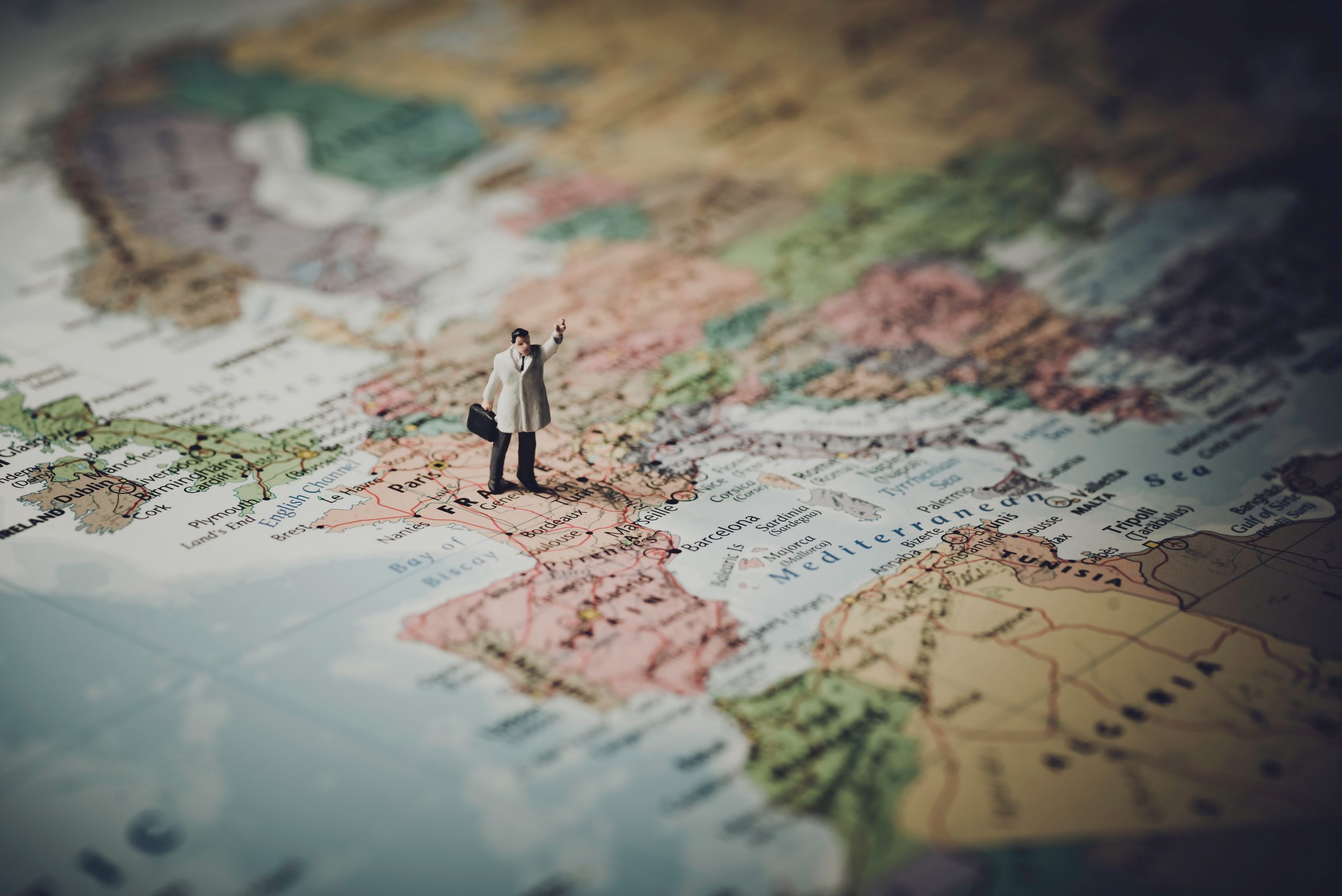Moving to another country is an exciting and life-changing decision. However, before embarking on this new adventure, it is essential to carefully consider various factors to ensure a smooth transition and a successful relocation. The destination country plays a crucial role in determining the overall experience, making it essential to thoroughly research and gather information before making any commitments.
One important factor to consider is job opportunities. Researching the job market and understanding the demand for your skills and qualifications is crucial. Additionally, understanding the cost of living is vital in determining if the destination country aligns with your financial goals and expectations.
Cultural aspects should also be taken into account. Every country has its unique cultural values, traditions, and social norms. Understanding and appreciating cultural differences can help ease the transition and contribute to a more fulfilling experience.
The quality of life in the destination country is another vital consideration. This includes factors such as healthcare, safety, education, and recreational opportunities. Evaluating the overall well-being and welfare of residents will help determine if the destination country matches your lifestyle preferences.
Destination Country
When considering moving to another country, one of the most important factors to consider is the destination country itself. The choice of where to move will greatly impact your overall experience and quality of life. Researching and gathering information about the destination country is crucial to ensure a smooth transition and successful relocation. Factors such as job opportunities, cost of living, cultural aspects, and quality of life should all be taken into account. By thoroughly evaluating the destination country and its suitability to your needs and preferences, you can make an informed decision and embark on your new adventure with confidence.

Researching the Country
Researching the country you plan to move to is an essential step before making the big move. By taking the time to research, you can gain valuable insights into the culture, people, food, interesting cities, and natural wonders of your destination. This knowledge will not only help you familiarize yourself with your new country but also allow you to fully immerse yourself in its unique experiences and opportunities.
One of the most important aspects to consider is the language spoken in your destination country. Taking an introductory language course can be immensely beneficial. It will not only help you communicate with locals but also understand their customs and way of life on a deeper level. Learning basic phrases and the local language can make navigating your new surroundings much easier and less intimidating.
Additionally, it is highly recommended to visit the location before committing to a permanent move. This will give you a firsthand experience of the country and allow you to see if it aligns with your expectations. Many countries also offer tourist visas for short stays, which can provide an opportunity for exploration and a taste of what life would be like in your new destination.
Visa Requirements
Before deciding to move to another country, it is essential to understand the visa requirements for your destination. Different countries have various visa types, each with its restrictions and limitations. Checking visa requirements and understanding the implications are crucial to ensure a smooth transition.
Several common types of visas may be relevant to consider. Tourist visas are typically short-term and do not permit working in the host country. Student visas are granted to individuals pursuing education but may have restrictions on employment. Work visas are specifically designed for individuals who have secured employment in a foreign country and may have limitations on working hours. Residency visas allow individuals to live and potentially work in a foreign country for an extended period.
When applying for a visa, it is important to ask key questions such as the duration of the visa, whether it can be renewed or extended, the potential for permanent residency or citizenship, and associated fees. It is also crucial to consider any restrictions on employment, access to public benefits, or limitations on travel outside the country.
Residency and work visas are particularly important for those planning to live and work in a foreign country. These visas provide the legal framework for long-term stay and employment opportunities. Understanding the requirements and procedures for obtaining these visas is essential for a successful relocation abroad.
Language Barriers
Language barriers can be a significant challenge when moving to another country. Not speaking the local language can cause difficulties in various aspects of daily life, such as communication with locals, understanding important documents, and navigating basic services.
However, addressing language barriers is crucial for a successful transition and integration into the new country. Learning the local language not only opens doors to better communication but also fosters meaningful connections with the local community and culture. It allows for a deeper understanding of the country’s customs, traditions, and way of life.
Fortunately, there are numerous resources and methods available to learn a new language. Online courses, language apps, and language exchange programs offer flexibility and convenience. Hiring translation services can also be beneficial when dealing with important documents or complex situations.
In addition, tools like Google Translate can be useful for quick translations or for understanding basic phrases. While it’s not a substitute for learning the language, it can provide immediate assistance when needed.
Addressing language barriers may require time, effort, and dedication, but the benefits of learning the local language are undeniable. It helps to navigate everyday life, build connections, and truly immerse oneself in the host country’s culture, making the transition abroad a more enriching experience.
Cost of Living
When planning to move to another country, it’s important to consider the cost of living in the destination country. This refers to the expenses associated with daily life, such as housing, food, transport, and healthcare. Understanding the cost of living in a foreign country is crucial for budgeting and ensuring financial stability in your new home.
Several factors contribute to the overall cost of living in a country. Housing costs can vary greatly depending on the location and type of accommodation. Similarly, the price of groceries and dining out can differ significantly from what you may be used to. Transportation costs, including public transportation or owning a car, should also be taken into account.
Healthcare is another aspect to consider. The availability and cost of healthcare services can vary between countries. It’s important to research the healthcare system and determine if you will need to obtain private health insurance or participate in a public healthcare program.
To get a better understanding of the cost of living in a specific country, resources like Numbeo.com can provide valuable information. These platforms offer comprehensive data on various expenses, allowing you to compare costs between countries and make informed decisions about your financial situation.
Considering the cost of living in your potential host country will help you plan your budget accordingly and ensure a smooth transition into your new life.
Culture Shock
Culture shock is an important aspect to consider before moving to another country. It refers to the disorientation and challenges individuals may experience when they are exposed to a new and unfamiliar culture. The impact of culture shock can manifest in various ways and understanding these challenges is essential for a successful transition.
One of the most common manifestations of culture shock is feeling disoriented. Being in a foreign country with different customs, traditions, and ways of life can leave individuals feeling out of place and uncertain about how to navigate their new surroundings. Additionally, language barriers can exacerbate this disorientation, making it difficult to communicate effectively or understand instructions.
Another challenge of culture shock is adapting to social norms. Each country has its own set of unwritten rules and social expectations, and these can differ greatly from one’s home country. Understanding and adhering to these norms may take time and effort, and can lead to feelings of frustration or confusion.
By being aware of the potential challenges of culture shock, individuals can better prepare themselves for the adjustments they may need to make when moving to another country. Taking the time to learn about the local customs, language, and social norms can help alleviate some of the stress associated with culture shock and make the transition a smoother and more positive experience.
Living Expenses
Living expenses play a crucial role in the decision to move to another country. It is essential to consider the cost of housing, food, transportation, utilities, and other daily necessities in the destination country. Researching and understanding the average prices for these expenses will provide a clearer understanding of the overall cost of living.
Housing costs can vary significantly from country to country. It is important to research the rental or real estate market to determine whether housing is affordable and meets your desired standards. Consider factors such as rent or mortgage payments, property taxes, and any additional fees.
Food expenses are another significant consideration. The cost of groceries, dining out, and eating habits in the destination country can greatly impact your budget. Research the local food markets, dining options, and average meal prices to get a sense of the overall expenses.
Transportation fees, including public transportation or car-related expenses, should also be taken into account. Look into the price of public transportation passes, fuel costs, car insurance, and parking fees to understand the impact on your budget.
Utilities such as electricity, water, gas, and internet services are essential for daily living. Research the average monthly costs for these utilities in your destination country to plan your budget accordingly.
Daily necessities like clothing, personal care products, and household items may also vary in price. Research the average prices to determine any variations and account for them in your budget planning.
Taking the time to thoroughly research and understand these living expenses will help you make an informed decision and ensure a smooth transition when moving to another country.
Gym Membership and Real Estate Agent
Before moving to another country, it is crucial to consider canceling your gym membership and making arrangements for your current home. These tasks can be time-consuming and may require careful planning to ensure a smooth transition.
Canceling your gym membership is important to avoid unnecessary expenses. Most gyms require a notice period for cancellation, typically 30 days or more. Failing to cancel in time can result in ongoing charges even after you have left the country. It is best to notify your gym well in advance and ensure that all necessary paperwork is completed.
Selling or renting your home is also a key consideration. The timeline for this process can vary depending on the market conditions and location. It is advisable to start early to allow sufficient time for marketing, finding potential buyers or tenants, and completing the necessary legal procedures. Selling a home can take several months or longer, so it is important to have realistic expectations.
When it comes to selling or renting a home, there are various options available. You can choose to list your property on online platforms like Craigslist or work with a real estate agent or property manager who can assist you throughout the process. Real estate agents have access to a wider network of potential buyers or renters and can handle negotiations, paperwork, and other details on your behalf. They can also provide valuable guidance on pricing, marketing strategies, and legal requirements.
Considering the task of canceling your gym membership and making arrangements for your current home before moving to another country is essential to avoid unnecessary expenses and ensure a smooth transition. Taking the necessary steps and seeking professional guidance, if needed, can help alleviate any potential challenges in this process.
Travel Plans and Preparations
Before making the exciting decision to move to another country, there are several important factors to consider. One key aspect is your travel plans and preparations. This includes canceling your gym membership and handling the sale or rental of your home. Canceling your gym membership in advance will help you avoid ongoing charges even after you’ve left the country. Selling or renting your home requires careful planning and adequate time to complete all necessary legal procedures. Starting early in this process is crucial to ensure a smooth transition. Whether you choose to list your property online or work with a real estate agent, their expertise and guidance can greatly assist in attracting potential buyers or renters and handling the necessary paperwork. Taking care of these preparations beforehand will alleviate stress and allow you to fully enjoy your journey to a new adventure in a foreign land.

Choosing a Host Country
When considering a move to another country, there are several factors to take into account before making a decision. Understanding the cost of living, job market, and quality of life in the host country can greatly influence your experience as an expatriate.
The cost of living is an important consideration, as it directly impacts your monthly expenses and overall financial well-being. Researching the average cost of housing, transportation, food, and other necessities is crucial in determining if a country aligns with your financial goals.
Another factor to consider is the job market. Research the current job market and opportunities in the host country to ensure there are suitable options available in your desired field. Understanding the demand for your skill set and the potential for career growth is essential for a successful transition.
Quality of life is also a significant factor to consider. This includes factors such as safety, healthcare, education, cultural opportunities, and overall standard of living. Expatriate forums and locals can provide valuable insights into these aspects, as they have firsthand experience living in the host country.
Based on recommendations from expatriate forums and locals, some potential host countries to consider include Canada, Germany, New Zealand, and Singapore. These countries have been praised for their cost of living, job market opportunities, and overall quality of life.
Making Travel Arrangements and Reservations
Making travel arrangements and reservations for moving to another country can be a daunting yet crucial task. Here are some steps to help you navigate the process smoothly:
1. Research and plan: Start by researching the best time to book flights, considering factors like cost and weather. Determine the date you want to arrive in your new country and allow ample time for visa processing.
2. Book your flight: Use reputable websites like Expedia, Skyscanner, or Kayak to compare fares and find the best deals on flights. Be flexible with your travel dates and consider booking a one-way ticket if you haven’t finalized your return plans. Look for airlines that allow flexible change or cancellation policies.
3. Arrange transportation from the airport: Prioritize arranging transportation from the airport to your new home. Research public transportation options, such as trains or buses, or consider pre-booking a taxi or airport transfer service. Some ride-sharing apps like Uber or Lyft may also be available in certain countries.
4. Find accommodation: Use websites like Booking.com, Airbnb, or Hotels.com to find affordable and convenient accommodation options in your new destination. Look for places close to amenities and public transportation for easier settling in.
5. Explore travel packages and tours: If you want to explore your new country as a tourist before settling down, consider booking travel packages or guided tours. Websites like Viator or TripAdvisor offer a wide range of tours and experiences, allowing you to make the most of your initial days abroad.
Remember to be flexible, allow for some spontaneity, and keep an eye out for any travel advisories or restrictions. With proper planning and research, you can make travel arrangements and reservations that suit your needs and budget.
Organizing Medical Records and Health Insurance Plans
When planning a move to another country, it is crucial to consider your healthcare needs and ensure you have appropriate health insurance coverage. Here are some important factors to consider:
1. Organize medical records: Before you move, it’s recommended to organize your medical records and keep them easily accessible. This includes documenting your medical history, any ongoing medications, and immunization records. This will help healthcare professionals in your new country provide appropriate care and avoid unnecessary tests.
2. Understand the healthcare system and laws: Take the time to research and understand the healthcare system and laws of your destination country. Each country has its regulations and requirements for healthcare coverage, so it’s important to be aware of them to ensure you comply and access the care you need.
3. Types of international health insurance: There are different types of international health insurance plans available. Some options include international health insurance plans specifically designed for expatriates, travel health insurance plans, or private health insurance plans in the host country. Each has its advantages and disadvantages, so it’s crucial to compare and choose the one that best suits your needs and budget.
4. Consider coverage and benefits: When selecting a health insurance plan, consider factors such as coverage for routine check-ups, emergency medical care, hospitalization, and prescription medications. Additionally, look for plans that provide coverage for pre-existing conditions if applicable.
Moving to another country is an exciting adventure, but it’s important to take care of your health by organizing medical records and choosing appropriate health insurance plans. With proper preparation, you can have peace of mind knowing that you have access to quality healthcare in your new home.
Petition Form I-130
Petition Form I-130 is an essential document for those planning to move to the United States and sponsor their immediate relatives to immigrate. This form serves as a petition to establish a relationship between the petitioner, a U.S. citizen or lawful permanent resident, and the foreign national relative seeking immigration.
Completing and submitting Petition Form I-130 is a crucial step in the immigration process. It requires detailed information about both the petitioner and the beneficiary, including their details, immigration status, and supporting documentation to prove the familial relationship. Accuracy and thoroughness in completing the form are vital to avoid delays or potential denials.
Once the form is completed, it must be submitted to the appropriate U.S. Citizenship and Immigration Services (USCIS) office, along with the required filing fee and supporting documents. After reviewing the petition, USCIS will determine the eligibility of the petitioner and beneficiary, and if approved, the case will proceed to the next steps in the immigration process.
Petition Form I-130 is a vital tool for sponsoring immediate relatives to immigrate to the United States. It allows families to reunite and build a new life together in the country. Understanding the process and diligently completing the form will increase the chances of a successful immigration journey for everyone involved.
Conclusion
In conclusion, moving to another country is a significant decision that requires careful consideration and thorough preparation. It is crucial to take into account factors such as the cost of living, language barriers, visa requirements, healthcare, and job opportunities. This will help ensure a smooth transition and avoid any unnecessary challenges or setbacks.







